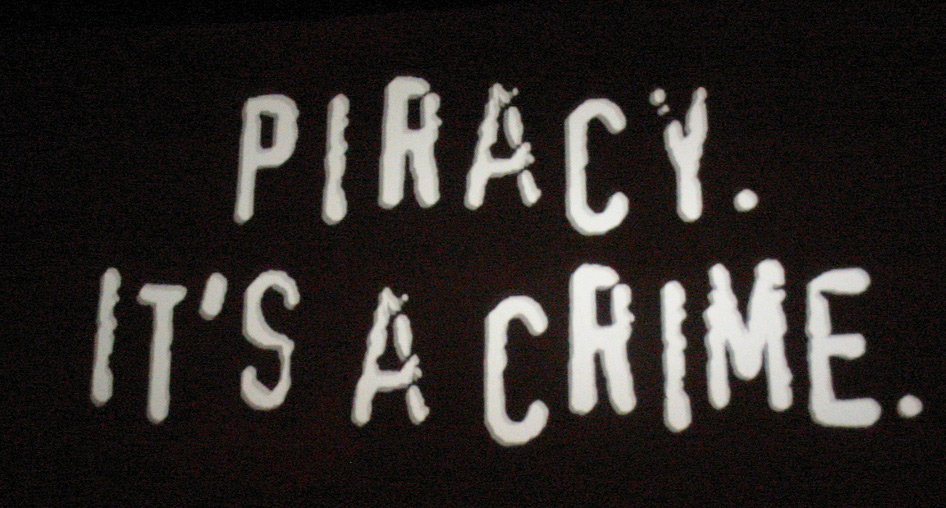The effectiveness of warning letters sent to households that are thought to have downloaded media that's copyright protected is pretty much unknown. Some people pay up if money is demanded to make the whole thing go away, some ignore it and others fight it saying that it certainly wasn't them. However one thing we do know for sure, in Canada at least, is that sending someone a piracy notice warning seems to increase the person's interest in hiding their activity via VPN.
Canada is an interesting example, as it's very fresh when it comes to piracy notices. As the new year rolled around, ISPs were forced to send out notices to their customers if they were discovered to be pirating anything. These letters have been going out in their thousands every single day, even at the smaller ISPs. On top of those notices, media lobby groups like the US based RightsCorp, have been sending out their own letters, often demanding settlement fees to avoid court time. However, often in those cases the firm has been using payment as an admission of guilty, then either requesting more money or pushing for court.

Maybe Canada just needs the excellent anti-piracy adverts we've had in our time?
Whether these notices are stopping people pirating is hard to tell, but clearly a lot of them are interested in anonymising their activity, as interest in VPNs has shot up in Canada in recent weeks. TorGuard, a VPN and BitTorrent proxy service, has seen its business double in Canada since the start of 2015 and it doesn't seem to be stopping there, increasing by the day.
TorrentFreak spoke with the owners of a few different VPN providers, asking them if they too sent out notices for piracy – as they are legally required to by the government – however, most don't keep logs of IP addresses, which is part and parcel of the security and anonymity they provide users. It does make you wonder though if that will leave them open to problems in the future.
Discuss on our Facebook page, HERE.
KitGuru Says: Of course we don't condone piracy, but if you do take part in it, would a letter in the post affect your actions?
 KitGuru KitGuru.net – Tech News | Hardware News | Hardware Reviews | IOS | Mobile | Gaming | Graphics Cards
KitGuru KitGuru.net – Tech News | Hardware News | Hardware Reviews | IOS | Mobile | Gaming | Graphics Cards



u mean the 2800+ over the past 10 years.. ? NAH…. the only thing that changed was the amount of data I collect *shifty eyes* form a few 100 mb back in the day of 128kpbs connection to 3TB a month at 50mbps connection… Why stop right
How can ISP’s know you’re downloading Torrents? Since it’s ILLEGAL for ISP’s in Canada to know what sites you visit or know what you’re downloading , they’re not allowed to watch your traffic only monitor how much bandwidth you use for data caps that’s it. Reason why people are getting vpn in Canada is most likely is to watch better online netflix or other things due to the fact we get Ripped off on these sites , For example , breaking bad last half of the final season never came to the Canadian netflix for like 2 years or more and it was on American Netflix right away with no wait. Like WTF.
I can’t speak for Canada, but I worked for an ISP here in the States. It can get complicated, but I’ll give this a shot…
Complaints can come from two sources essentially (usually working in tandem): the people who own the copyright and the ISP’s themselves who serve as the messengers. Remember, many copyright holders usually monitor BitTorrent trackers and see who seeds/leeches… So let’s say you illegally downloaded Grey’s Anatomy and received a letter from your ISP. DMCA notices usually come from the copyright holder (or the companies they work with / hire to pursue the infringements, such as the RIAA or RightsCorp) and go directly to the ISP. They tell the ISP that “‘IP-address-such-and-such’ downloaded Grey’s Anatomy and that content is owned by Disney so unless you want us / them to fine and go after you tell ‘IP-address-such-and-such’ to knock it off.” ISP’s send you a letter saying, “knock the crap off or we’ll turn your connection off so we don’t have to deal with these jerks… and stop watching Grey’s Anatomy.”
If you chronically infringe, some ISP’s will turn over your information so they can go after you and leave them alone. Static IPs make you a much bigger target too. It’s a case by case basis really, and it depends on how cool your ISP is. Either way, these companies are starting to ramp up fines and lawsuits again so VPNs are looking greater by the day…